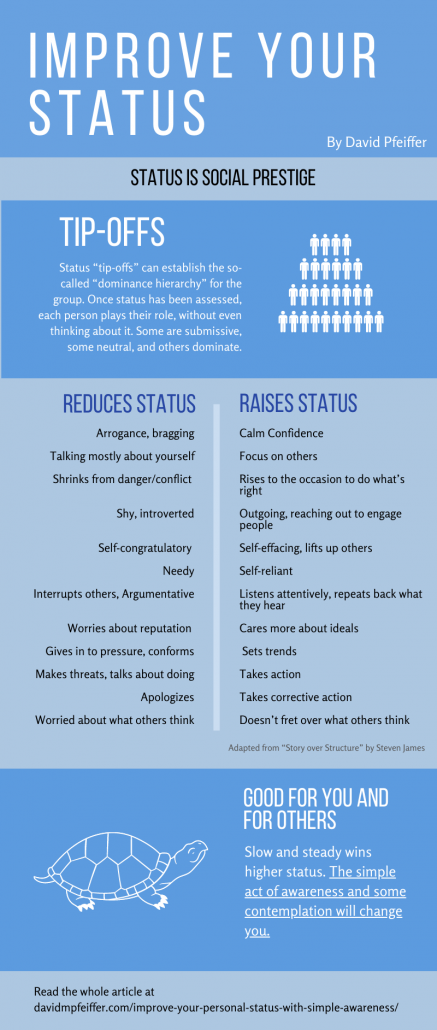Improve your Personal Status with Simple Awareness
Read this article to raise your social status
By David Pfeiffer
Check my Status
Most people want higher status, even if they don’t know why. But obtaining it is easier said than done. So, why is it so hard to gain status? Most likely you are the one that is holding yourself back from increasing your status without even knowing it.
What is Status?
By status, I don’t mean symbols of wealth like your watch or handbag. Rather “status is social prestige (1) .”
It’s your social mindset — the way you behave in social situations to accommodate the status of the people you are interacting with.
Our brain is wired to seek out status hierarchies. Then our behaviors fall into line with our social mindset.
Some people don’t like to talk about status. They feel that only conceited, narcissistic people think about it. But it is a key element of almost every social interaction we have.
Status is not Power
If you want the status to “lord” it over others or inflict pain, then you don’t want status, you want power, “the asymmetrical control over people and resources.”
“Status (especially without power) makes people more just (1)” So status can be good, no matter the connotations that may be associated with it.









